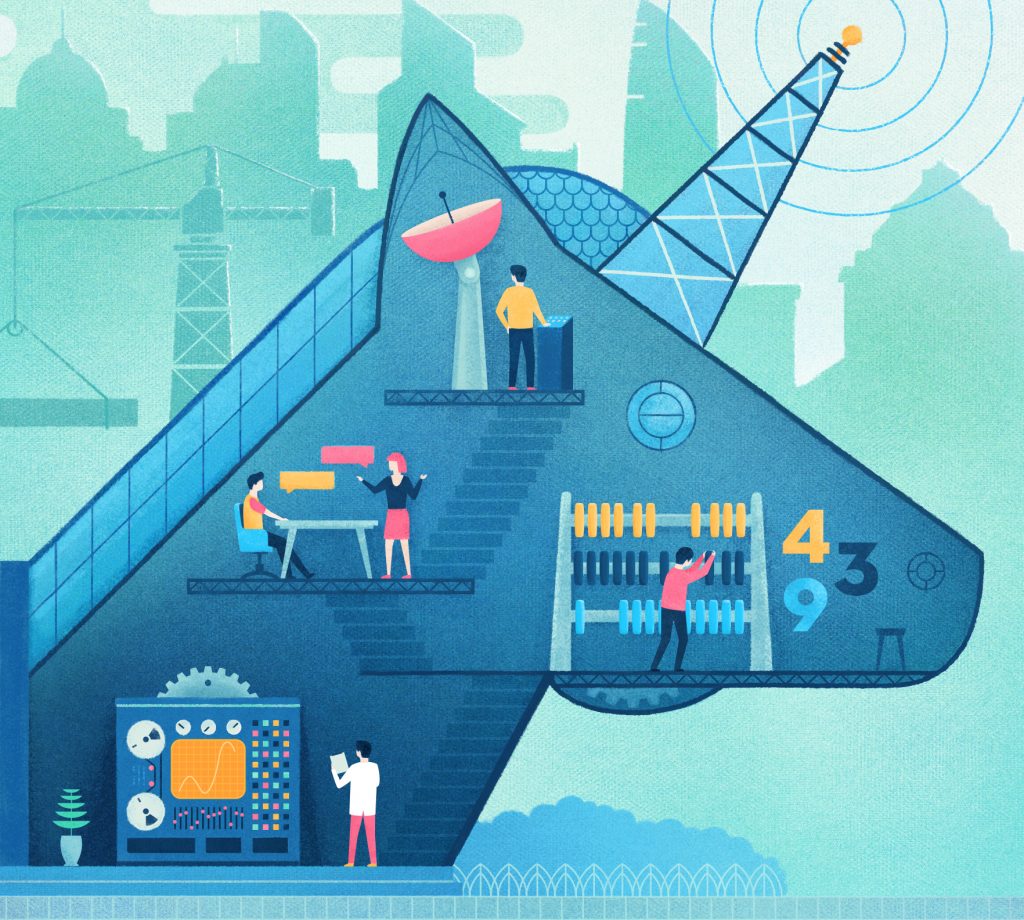The era of raising billions is gone, India’s unicorns are gasping

Big investors like SoftBank and Fidelity invested crores in Indian startup company Meesho, seen as a competitor of the world’s largest e-commerce company Amazon, last year, the company’s market value more than doubled to five billion dollars or 3.5 trillion dollars. had reached Rs.
Meesho was not the only Indian company to get such a high investment. Last year in India was a year of huge investments in startup companies. Riding on the wave of success, these companies had raised an investment of a record $ 35 billion i.e. about 27 trillion rupees. But the speed with which this wave of success came, has also returned at the same speed.
What is investment, what about debt
Anand Lunia of venture capital firm Indio Quotient says that he had never seen such a return of Lehar. Lunia of India Quotient, a company that has invested in more than 70 companies since 2012, says, “We have not seen such a slowdown in the last five-six years. It is going to be brutal. I am preparing to see a lot of zombie unicorns.” I am. Companies that became unicorns but have no business model. They have stopped hiring people. They are not dying but will soon become irrelevant.”
Such is the condition of Misho. Now she is trying to reduce expenses and get loans. At least two people with knowledge of the situation have told Reuters news agency that spending $45 million a month is worrying investors and that its recent attempt to raise $1 billion failed. However, Meesho has denied any such thing. In a statement, the company said that it is not factually correct that its fundraising efforts have failed and that it is all about “finding the right partner, investing in the right terms and at the right price”.
Companies are constantly sitting
Share prices of tech companies in India are falling continuously. But the fear of investors is not just falling stock prices. According to two venture capital investors, concerns about corporate governance have also increased. These investors say that there is also concern that the market prices of these companies are already very high, while the revenue potential is low.
Eight venture capital and startup executives say there is a growing fear among investors that dwindling funding will lower the market price of companies, which will stunt their growth and lose jobs. Lunia says that wherever his company has invested in startups, it has to be ensured that there is money to run expenses for at least 18 months, and if necessary, people and expenses are reduced for this. do it.
Just last week, a startup called Bharat-Pe announced that it would change its administrative system. Bharat Pay, which received investment from Sequoia Capital, has made this announcement after its internal review. Vedantu, another startup that provides online tutoring, fired two hundred people this month.
Vedantu, with a market value of $1 billion, had received investment from Tiger Global. He said that on the basis of development estimates, it was decided to remove people from jobs. On Wednesday, Vedantu announced the removal of 424 more people. He said that looking at the external market environment, it appears that there will be a shortage of funds in the coming months.
Investors do not want to take risk now
Till now Tiger Global was investing in big Indian startups but now it has told banks that it will consider investing in only those companies whose market value is less than $ 200 million or about 1.5 billion rupees. Two officials familiar with the matter said that the company is trying to reduce its risk. Tiger Global did not respond to formally sent queries regarding this.
More than 60 thousand startups have started in India and the Prime Minister of the country, Narendra Modi had said that new unicorns are emerging every few weeks. Unicorns are called startup companies whose market value is more than one billion dollars i.e. about 75 billion rupees. April is the first month in more than a year when not a single company has become a unicorn.
In March and April, Indian startup companies raised an investment of $ 5.8 billion, or about 4.5 trillion rupees, which is about 15 percent less than the same period last year.
Easy money era
It is not that the position of startup companies is better in other countries. The Ukraine war and interest rate hikes have hit investments heavily. Japan’s SoftBank is the largest investor in India’s tech sector. It has invested $14 billion. But it said its investing arm, Vision Fund, has incurred a loss of $26.2 billion.
SoftBank had invested in Paytm and in November last year, Paytm’s stock fell by 27 percent in its inception itself. Since then the stock of Paytm has fallen by 62 percent. The same is true of Zomato and Naika who started off well but have dropped by 67 and 37 per cent respectively from their heights.
Three people who founded the startup told that investments have told them that the era of easy money is over and to make profits, then a clear path has to be proved.







